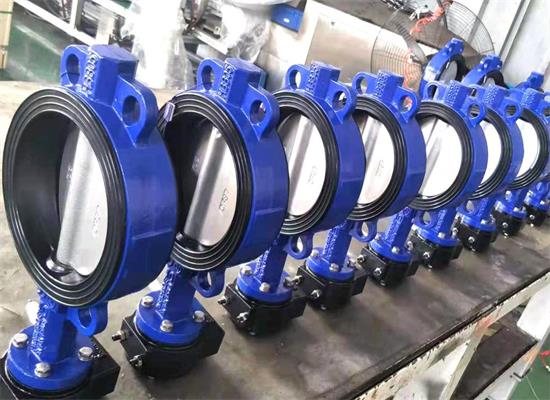In recent years, with the improvement of people’s living standards and industrial development, the consumption of fresh water has increased year by year. In order to solve the water problem, many large-scale desalination projects are under intense construction in the country. In the process of seawater desalination, special attention should be paid to the corrosion of chloride to equipment. Valve material problems often occur on the flow-through components. At present, the main materials of the valve material for seawater desalination are nickel-aluminum bronze, stainless steel, duplex stainless steel and ductile iron + metal coating.
Nickel Aluminum Bronze
Nickel-aluminum bronze has excellent resistance to stress cracking corrosion, fatigue corrosion, cavitation corrosion, erosion resistance and marine organism fouling. Compared with stainless steel in seawater containing 3% NaCI, nickel-aluminum bronze alloy has excellent resistance to cavitation damage. The corrosion of nickel aluminum bronze in seawater is pitting corrosion and crevice corrosion. Nickel-aluminum bronze is sensitive to the seawater velocity, and when the velocity exceeds the critical velocity, the corrosion rate increases sharply.
Stainless Steel
The corrosion resistance of stainless steel varies with the chemical composition of the material. 304 stainless steel is resistant to pitting corrosion and cracking corrosion in a water environment containing chlorides, and cannot be used as a flow-through component in seawater. 316L is austenitic stainless steel containing molybdenum, which has better resistance to general corrosion, pitting corrosion and crack corrosion.
Ductile Iron
In order to reduce the project cost, the valve body adopts ductile iron lining EPDM, and the valve disc adopts ductile iron lining anti-corrosion coating.
(1) Ductile iron lining Halar
Halar is an alternating copolymer of ethylene and chlorotrifluoroethylene, a semi-crystalline and melt-processable fluoropolymer. It has good corrosion resistance to most organic and organic chemicals and organic solvents.
(2) Ductile iron lining Nylon11
Nylon11 is a thermoplastic and plant-based coating, which can prevent the growth and growth of fungi. After 10 years of salt water immersion test, the underlying metal has no signs of corrosion. In order to ensure the stability of the coating and good adhesion, the use temperature of Nylon11 should not exceed 100℃ when it is used in the butterfly plate coating. When the circulating medium contains abrasive particles or frequent switching operations, it is not suitable to use the coating. In addition, the coating should be prevented from being scratched and peeled off during transportation and installation.
Post time: Dec-17-2021


